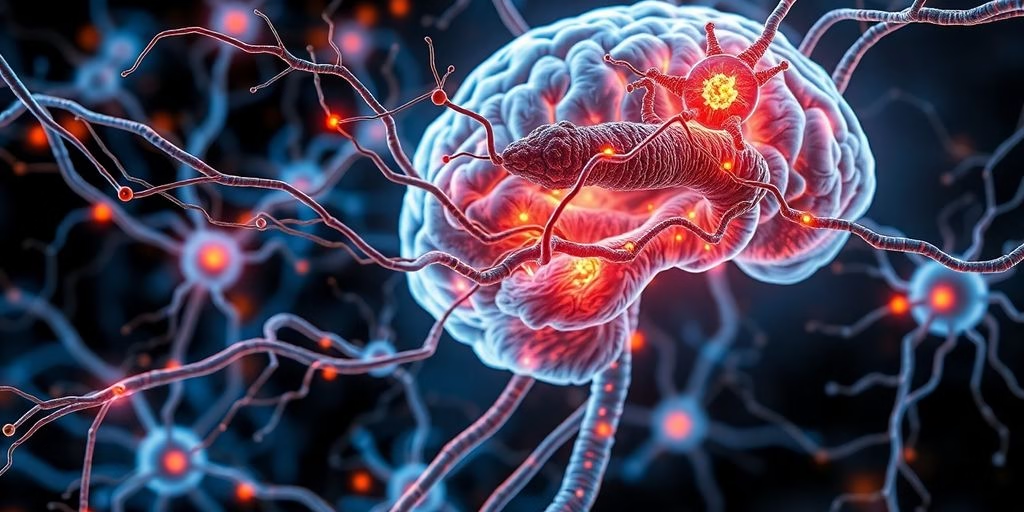ADHD is something many people wonder about, and understanding how the brain works with it is a big part of that. We’re going to look at what the latest science says about the neurobiology of ADHD. It’s not always simple, but getting a clearer picture can help a lot. Let’s see what we can learn.
Key Takeaways
- The neurobiology of ADHD involves differences in brain structure and how certain brain chemicals, like dopamine and norepinephrine, work.
- Genetics plays a significant role in how ADHD affects the brain, but outside factors can also influence its development.
- Research continues to uncover more about the brain’s workings in ADHD, offering new insights into how it affects people.
Understanding the Neurobiology of ADHD

When we talk about Attention-Deficit/Hyperactivity Disorder (ADHD), it’s really about how the brain works differently. For folks in Texas, Washington, California, Iowa, and New York, understanding these differences is key. It’s not about a lack of willpower or intelligence; it’s rooted in the brain’s structure and how different parts communicate.
Brain Structure and Function in ADHD
Research has shown some consistent patterns in the brains of individuals with ADHD. It’s not a single
Emerging Research in ADHD Neurobiology

When we look at Attention-Deficit/Hyperactivity Disorder (ADHD), it’s not just about what we see on the surface. The science behind it is always moving forward, and that’s what we’re going to talk about here. For folks in Texas, Washington, California, Iowa, and New York, understanding these new findings can really help.
Genetic Influences on ADHD Neurobiology
Genetics plays a big part in ADHD. It’s not just one gene, but a mix of many that can make someone more likely to develop ADHD. Researchers are finding specific genes that affect how brain cells talk to each other, especially those using dopamine and norepinephrine. These are the same chemicals we talked about in the last section. Think of it like a recipe; if certain ingredients (genes) are a bit different, the final dish (brain function) can turn out differently. This complex interplay of genes means ADHD isn’t a simple condition to pin down. We’re seeing that certain gene variations can impact the development of brain areas responsible for focus and impulse control. It’s a really active area of study, and we’re learning more about how these genetic blueprints shape brain wiring from the start. If you’re curious about how genetics might play a role, it’s worth looking into ADHD research.
The Role of Environmental Factors in ADHD Development
Beyond genes, what happens around us also matters. Things like what a mother is exposed to during pregnancy, or early childhood experiences, can influence ADHD. For example, exposure to certain toxins or complications during birth have been linked to a higher risk. It’s not about blaming anyone; it’s about understanding the whole picture. These environmental factors can interact with genetic predispositions, making the picture even more complex. It’s like having a genetic tendency for something, but then certain life events can either bring that tendency out or keep it quiet. We’re seeing studies that look at things like lead exposure or even prenatal stress and how they might affect brain development in ways that look like ADHD. It’s a reminder that our environment shapes us in ways we’re only beginning to understand.
If you’re in TX, WA, CA, IA, or NY and want to discuss how these factors might be affecting you or someone you care about, please consider booking an appointment with us. We’re here to help you understand and manage ADHD. Book an appointment.
New studies are uncovering exciting details about how ADHD affects the brain. Scientists are learning more about the tiny parts of the brain and how they work. This research could lead to better ways to help people with ADHD. Want to learn more about ADHD and how we can help? Visit our website today!
Looking Ahead with ADHD Research
So, we’ve talked a lot about what’s happening in the brain with ADHD. It’s pretty complex, right? We’re learning more all the time about how different parts of the brain and certain chemicals work together, or sometimes don’t work so well, in people with ADHD. This ongoing research is really important because it helps us understand why some treatments work better than others and how we can find new ways to help. It’s not just about managing symptoms; it’s about understanding the whole picture. If you’re curious about how this research might apply to you or someone you know, reaching out to a professional is a great next step. Getting personalized advice can make a big difference. You can book an appointment with us at Polished Mind Psychiatry to discuss your specific needs.
Frequently Asked Questions
What’s different in the brain for people with ADHD?
Think of ADHD like a slight difference in how certain brain parts talk to each other. It’s not about being ‘bad’ or ‘lazy.’ Research shows that areas of the brain that help with focus, planning, and controlling impulses might work a little differently in people with ADHD. This can make it tricky to stay on task or manage sudden urges.
Is ADHD something you can inherit?
Yes, genes play a big role! It’s like inheriting certain traits from your parents. If ADHD runs in your family, you’re more likely to have it too. Scientists are still learning exactly which genes are involved, but it seems to be a combination of many small factors rather than just one.
Can things other than genes cause ADHD?
While genes give us a starting point, things that happen around us can also influence ADHD. This could include things that happen before someone is born, like exposure to certain substances, or even challenges during early childhood. It’s often a mix of our genes and our environment that shapes how ADHD shows up.




